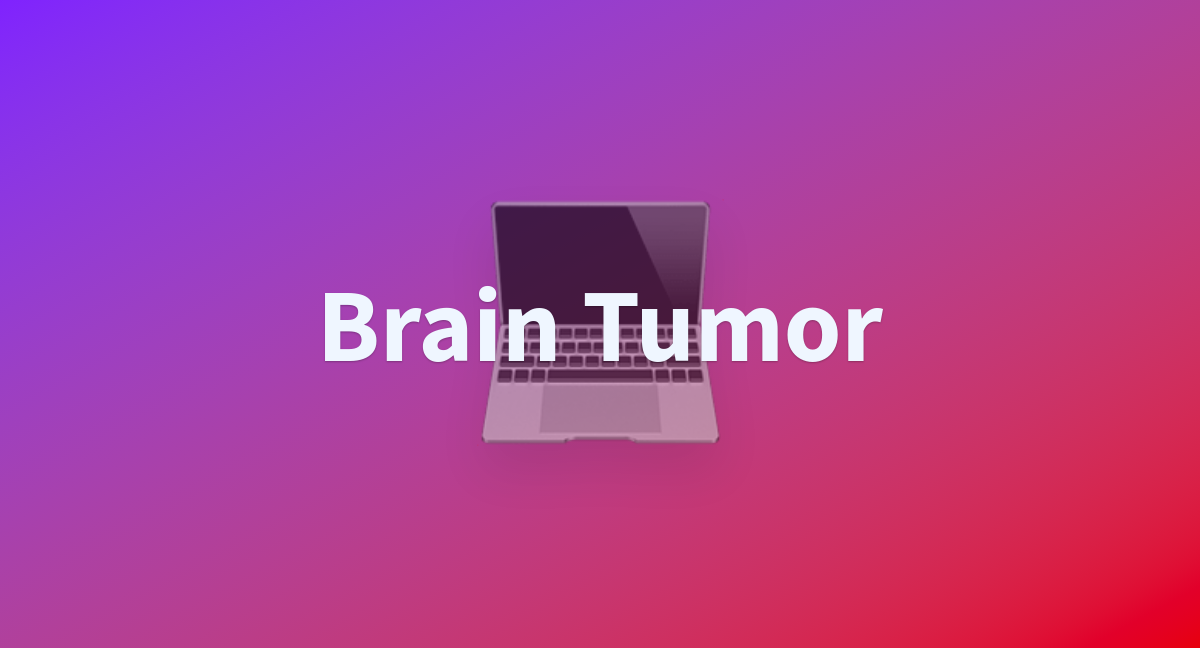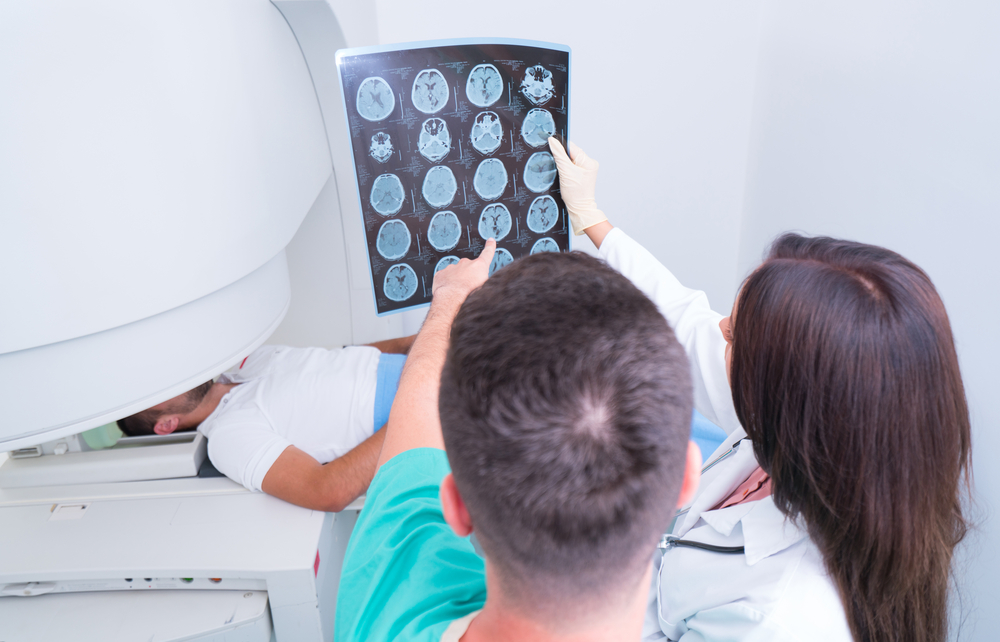Unlocking Hope: Comprehensive Guide To Brain Tumor Treatment In Bellingham
When life throws a curveball, like a brain tumor diagnosis, finding the right treatment in Bellingham can feel overwhelming. But hey, you're not alone in this journey. From cutting-edge therapies to compassionate care, Bellingham offers a range of options that can make a real difference. Let's dive in and break it down for you, because knowledge is power, right?
Dealing with a brain tumor diagnosis is tough, no doubt about it. But here's the thing: the medical community in Bellingham has been stepping up their game big time. Whether it's advanced imaging technology or personalized treatment plans, there's hope on the horizon. This guide is all about equipping you with the info you need to navigate this challenging path.
We get it—when someone you love is diagnosed, it's like entering a maze of medical jargon and treatment options. But don't worry, we've got your back. In this article, we'll explore everything from the types of brain tumors to the best treatment facilities in Bellingham. So, grab a cup of coffee, and let's tackle this together.
Read also:Exploring Rule 34 Sophie Rain A Comprehensive Guide
Understanding Brain Tumors: The Basics
Before we jump into treatments, let's talk about what brain tumors actually are. A brain tumor happens when abnormal cells grow uncontrollably in the brain. It can be primary, meaning it starts in the brain, or secondary, where it spreads from another part of the body. And guess what? Not all tumors are cancerous. Some are benign, which means they're not as aggressive.
Here’s the deal: symptoms can vary wildly depending on the tumor's location, size, and type. Common signs include headaches, seizures, memory problems, or even changes in personality. If you or someone close to you is experiencing these, it's crucial to seek medical advice pronto.
Types of Brain Tumors
Not all brain tumors are created equal. Here's a quick rundown of the main types:
- Gliomas: These tumors originate in the glial cells and are one of the most common types.
- Meningiomas: They develop in the meninges, the protective layers covering the brain and spinal cord.
- Pituitary Tumors: These tumors affect the pituitary gland and can mess with hormone production.
- Metastatic Tumors: These are secondary tumors that spread from other parts of the body, like the lungs or breast.
Knowing the type of tumor is key to determining the best treatment plan. So, it's important to work closely with your healthcare team to get an accurate diagnosis.
Brain Tumor Treatment Options in Bellingham
Now that we've got the basics down, let's talk treatments. Bellingham has some fantastic healthcare facilities that specialize in brain tumor care. From surgery to radiation therapy, there's a range of options available. But remember, the best treatment depends on the tumor's specifics and the patient's overall health.
Surgical Intervention
Surgery is often the first line of treatment for brain tumors. The goal? To remove as much of the tumor as possible while minimizing damage to healthy brain tissue. In Bellingham, surgeons use advanced techniques, like minimally invasive procedures, to achieve this. Some hospitals even offer awake brain surgery, which sounds intense but is super effective for tumors near critical areas.
Read also:Rick Pitino Opens Up On Benching Rj Luis During St Johns Seasonending Loss In Exclusive Clip
Here's the kicker: surgery isn't always the answer. Sometimes, the tumor's location makes it too risky to operate. In those cases, doctors might turn to other treatments.
Radiation Therapy
When surgery isn't an option, radiation therapy steps in. This treatment uses high-energy beams to destroy tumor cells. In Bellingham, facilities like the Bellingham Regional Cancer Center offer state-of-the-art radiation therapy. They use techniques like stereotactic radiosurgery, which delivers precise doses of radiation to the tumor while sparing surrounding tissue.
And let's not forget about proton therapy. It's a newer form of radiation that's gaining traction in the medical world. While not as widely available, some patients in Bellingham might have access to it through nearby referral centers.
Chemotherapy: A Powerful Ally
Chemotherapy involves using drugs to kill tumor cells. It's often used in combination with other treatments, especially for aggressive tumors. In Bellingham, chemotherapy is administered in outpatient settings, making it more convenient for patients.
There's a lot of talk about targeted therapies these days. These are drugs that attack specific parts of cancer cells, minimizing damage to healthy cells. Some Bellingham hospitals are at the forefront of researching and implementing these therapies, offering patients access to the latest advancements.
Immunotherapy: The Future of Treatment
Immunotherapy is a game-changer in the world of cancer treatment. It works by boosting the body's immune system to fight the tumor. While still relatively new for brain tumors, it's showing promising results. Bellingham is part of clinical trials exploring the potential of immunotherapy, giving patients access to cutting-edge options.
What's cool is that immunotherapy can sometimes shrink tumors that haven't responded to other treatments. It's like unlocking a secret weapon in the fight against cancer.
Supportive Care: An Essential Component
Treatment isn't just about eradicating the tumor. Supportive care plays a huge role in improving quality of life. Bellingham offers a variety of services to help patients and their families cope with the emotional and physical challenges of brain tumor treatment.
Palliative Care
Palliative care focuses on relieving symptoms and providing comfort. It can be used alongside other treatments to enhance overall well-being. Bellingham hospitals have dedicated palliative care teams that work closely with patients to manage pain, nausea, and other side effects.
And don't forget about mental health support. Dealing with a brain tumor can take a toll on emotional well-being. Many facilities in Bellingham offer counseling services to help patients and families navigate the psychological aspects of treatment.
Rehabilitation: Getting Back on Track
After treatment, rehabilitation is key to regaining strength and function. Physical therapy, occupational therapy, and speech therapy are all part of the recovery process. Bellingham has several rehab centers that specialize in neurological conditions, providing personalized care to help patients regain their independence.
It's not just about physical recovery, though. Cognitive rehabilitation is also important, especially for patients dealing with memory or concentration issues. Bellingham therapists use a variety of techniques to help patients relearn skills and adapt to any changes.
Community Support: You’re Not Alone
Having a strong support system is crucial during treatment. Bellingham is home to several support groups and organizations dedicated to helping brain tumor patients and their families. These groups offer a safe space to share experiences, gain advice, and find comfort in knowing you're not alone.
Plus, there are online communities that connect people from all over the world. Whether it's a Facebook group or a forum, these platforms can be a lifeline for those seeking information and encouragement.
Choosing the Right Treatment Facility
With so many options available, choosing the right treatment facility can be daunting. Here are a few things to consider:
- Expertise: Look for hospitals with experienced neurosurgeons and oncologists.
- Technology: Cutting-edge equipment can make a big difference in treatment outcomes.
- Location: Proximity to home can impact convenience and quality of life during treatment.
- Reputation: Check reviews and talk to other patients to gauge the facility's reputation.
Bellingham has several top-notch facilities, like the PeaceHealth St. Joseph Medical Center and the Bellingham Regional Cancer Center. Both offer comprehensive care and are well-regarded in the medical community.
Questions to Ask Your Doctor
When meeting with your healthcare team, don't be afraid to ask questions. Here are some to get you started:
- What type of brain tumor do I have?
- What are the treatment options available to me?
- What are the potential side effects of each treatment?
- What is the success rate of each treatment option?
- Are there any clinical trials I might be eligible for?
Being informed empowers you to make the best decisions for your care. And remember, it's okay to get a second opinion if you're unsure about the treatment plan.
Clinical Trials: Pioneering New Treatments
Clinical trials are essential for advancing brain tumor treatment. They test new therapies and treatments, offering patients access to groundbreaking options. Bellingham is part of several national and international trials, giving local patients the chance to participate in cutting-edge research.
Participating in a clinical trial isn't for everyone, but it can be a great option for those seeking alternatives to standard treatments. Talk to your doctor to see if you're eligible and what trials might be a good fit for you.
Benefits and Risks of Clinical Trials
Here's the deal: clinical trials come with both benefits and risks. On the plus side, you might gain access to treatments not yet widely available. Plus, you're contributing to medical research that could help countless others in the future.
On the flip side, there's always the risk of side effects or the treatment not working as expected. That's why it's crucial to weigh the pros and cons carefully and discuss them thoroughly with your healthcare team.
Conclusion: Taking Control of Your Journey
Fighting a brain tumor is no small feat, but with the right information and support, you can navigate this journey with confidence. Bellingham offers a wealth of resources and treatment options to help you every step of the way. From surgery to clinical trials, there's hope for a brighter future.
So, what's next? If you're reading this, chances are you're already taking the first step by educating yourself. Keep that momentum going by reaching out to your healthcare team, joining support groups, and exploring all your options. And don't forget to lean on your loved ones—they're your biggest cheerleaders.
Remember, you're not alone in this fight. Bellingham's medical community is here to support you, and with the right treatment plan, you can overcome this challenge. So, take a deep breath, and let's tackle this together.
Feel free to share this article with others who might find it helpful. And if you have any questions or thoughts, drop a comment below. Let's keep the conversation going!
Table of Contents
- Understanding Brain Tumors: The Basics
- Types of Brain Tumors
- Brain Tumor Treatment Options in Bellingham
- Surgical Intervention
- Radiation Therapy
- Chemotherapy: A Powerful Ally
- Immunotherapy: The Future of Treatment
- Supportive Care: An Essential Component
- Rehabilitation: Getting Back on Track
- Choosing the Right Treatment Facility
- Clinical Trials: Pioneering New Treatments


